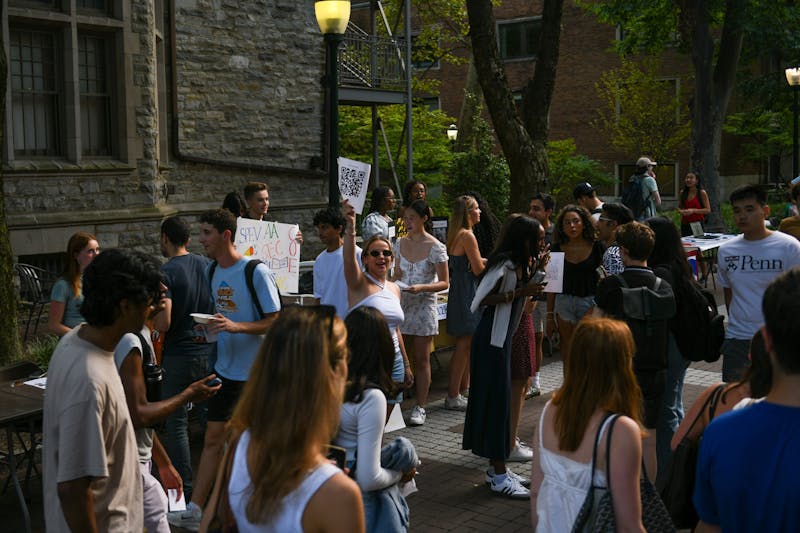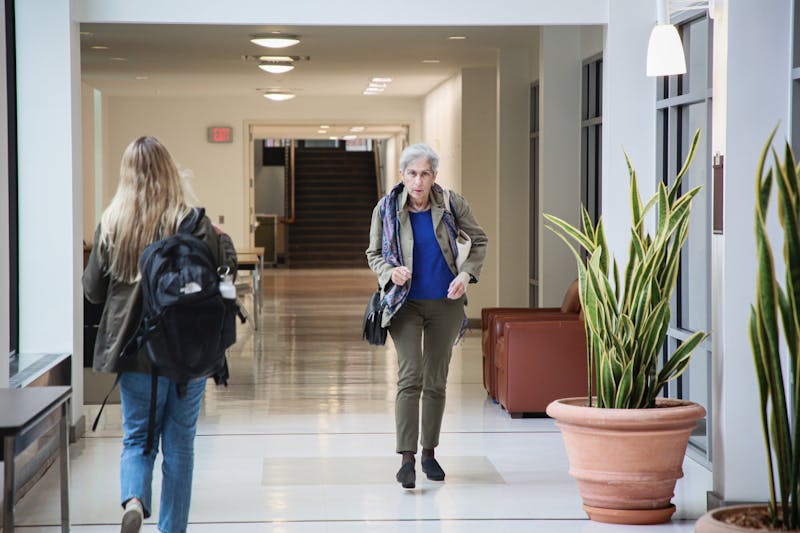
The No. 34 Trolley is probably not high up on the al Qaeda list of targets -- at least I certainly hope it isn't. I ride the 34 almost daily with thousands of other commuters. In total nearly a million people use some form of SEPTA transportation each day in Philadelphia, and all of us have a reasonable expectation that we will be safe.
But that's also what the hundreds that were killed or injured in London earlier this month thought when terrorists wreaked havoc on their morning commute.
The same thing could easily happen here or New York or Washington or San Francisco. And America's transit system is far less prepared to combat and deter such atrocities than our counterparts across the pond ? they at least had the foresight to install surveillance cameras and closely monitor their subway stations. Sometimes there is not even anyone to collect fares at 40th street on the El.
So it comes as no surprise that commuters and talking heads like me all across the country are a tad miffed at the recent dismissal by homeland security chief Michael Chertoff. In case you missed it, the man in charge of keeping America safe from terrorists told the Associated Press, "A commercial airliner, has the capacity to kill 3,000 people. A bomb in a subway car may kill 30 people. When you start to think about your priorities, you're going to think about making sure you don't have a catastrophic thing first."
Spoken like a man who has never ridden the D train to Yankee Stadium at rush hour.
To be fair, what he said does make sense. Obviously there is not an endless supply of money (apparently no one told Congress). Financing security projects must be prioritized. But security in mass transit need not detract from security at airports. Besides, Chertoff's poor choice of words is largely irrelevant; it's the actions by his department that matter.
Real widespread threats exist to both planes and trains. The latter, however is more widely used and substantially more vulnerable to attack. As the AP astutely pointed out, San Francisco's subway system carries more than twice the number of passengers each day than the Bay Area's three airports combined. The consequences of a bomb exploding in an Oakland subway station would be horrendous, but the situation becomes much worse if it were to happen, say in the three and a half miles of tunnel that cross underneath the bay. The system, which runs essentially in just two tunnels would be paralyzed, severing the connection between San Francisco and the East Bay.
A bomb under the Hudson would paralyze New York. The same goes for an explosion on the Ben Franklin Bridge.
Now is not the time to be looking in the other direction or brushing it off as Chertoff and Congress -- who have dragged their feet on recent proposals to ratchet up funding for strained transit security -- seem to be.
While nearly all issues of intra-city and intra-state transit ought to rightly be handled at the local level -- there is little reason for the fine people of Kansas to be paying for track replacement on Philadelphia's El -- this is a rare exception. Terrorism is an issue of national security, and deserves the full attention of the federal agencies designed to prevent it. Police officials at SEPTA are ill equipped to deal with al Qaeda, and they desperately need a hand.
Bringing more security to the subways and trains in this country is not an easy task, and there are few solutions that would insure even a minor increase in safety. A comprehensive plan would be nice, but the realization that it might be out of reach given current technology should not deter the government from footing the bill for putting more police officers in subway stations when they up the terror threat to orange.
The fact that a woman was attacked Monday on a Broad Street Subway platform only underscores how inadequate the security patrols are even under the heightened alert. More police are needed. Emergency call boxes, long broken and covered over, need to be replaced.
Commuters need to know that they are going to be safe on their way to work. If that assurance cannot be made, the alternative may be as simple as reverting to private cars to get from point A to point B. And you thought the Schuylkill Expressway was already crowded.
Jeff Shafer is a junior marketing and management concentrator from Columbia Falls, Mont., and Editorial Page Editor of The Daily Pennsylvanian. Par for the Course appears on alternate Thursdays.
The Daily Pennsylvanian is an independent, student-run newspaper. Please consider making a donation to support the coverage that shapes the University. Your generosity ensures a future of strong journalism at Penn.
DonatePlease note All comments are eligible for publication in The Daily Pennsylvanian.







